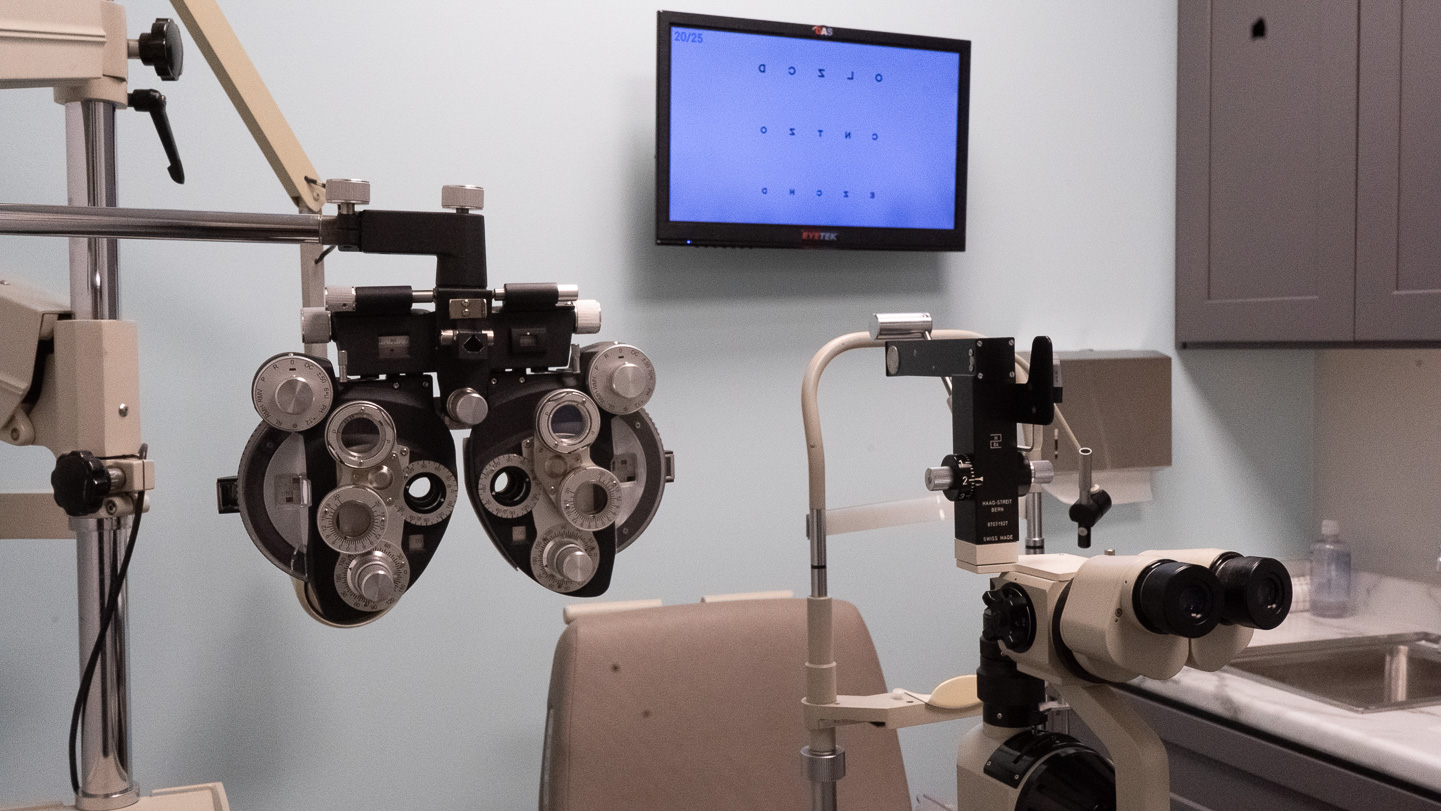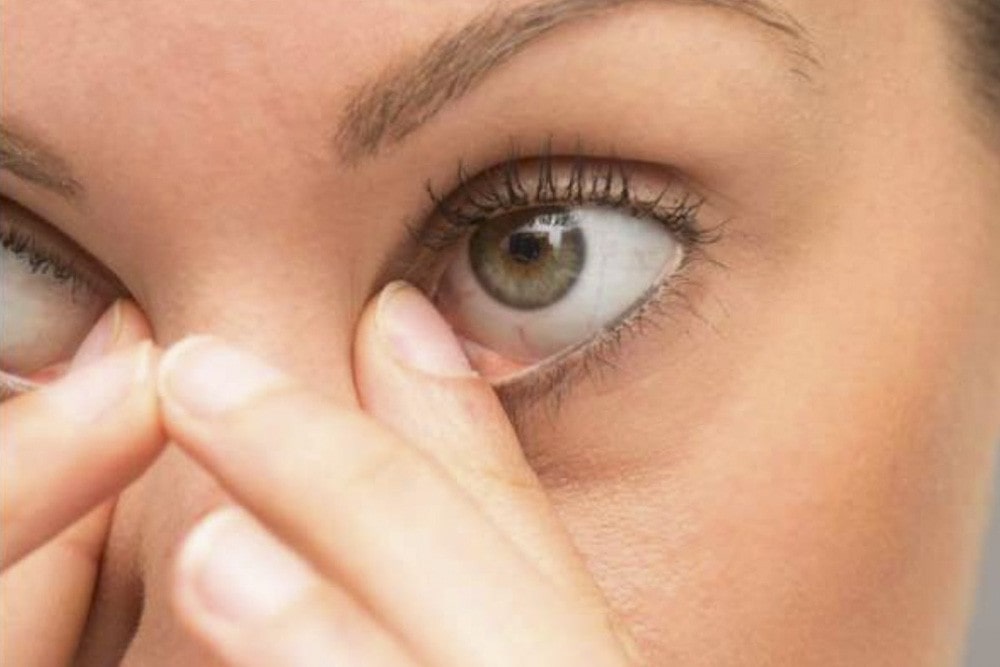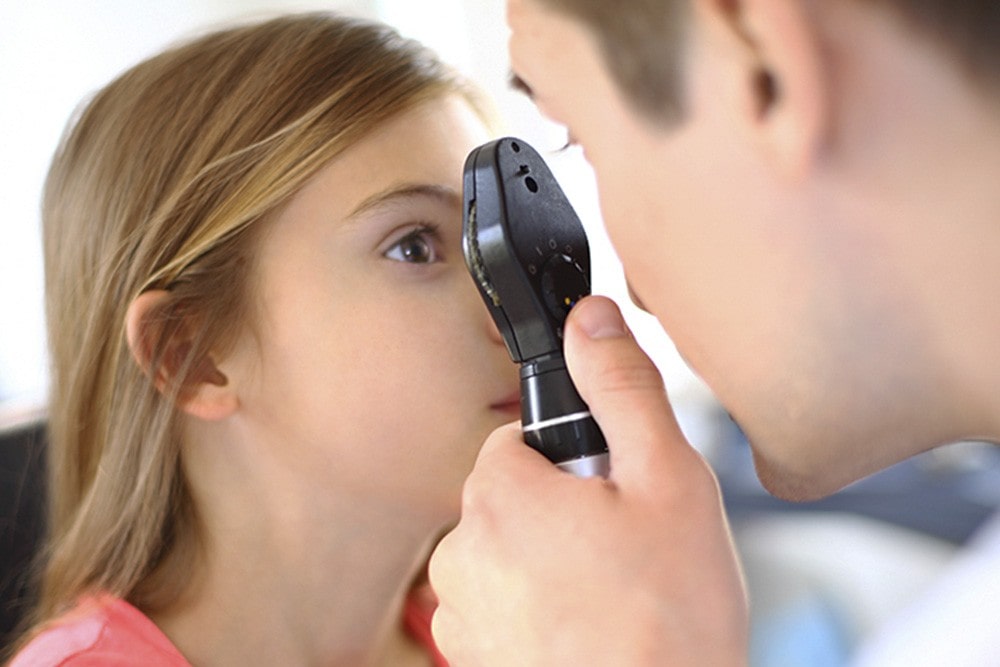
Low Vision Services in Tennessee
At OPMT Vision Centers, we’re proud to provide premier eye care to patients across Middle Tennessee. Our trusted optometrists, compassionate staff, advanced technology, and range of specialty services set us apart, allowing us to address our patients’ most unique needs.
One such specialty we offer is low vision treatment for visual impairments, which can occur for a variety of reasons. Please note that this service is only available at our Nashville office.

Our Nashville Low Vision Specialists
The team at OPMT Vision Centers is led by our founder, Richard D. Durocher, O.D. Dr. Durocher specializes in vision rehabilitation, vision therapy, and low vision services, and has been heavily involved in clinical research over the course of his career. His dedication to innovation in eye care sets the standard for the rest of our experienced physicians, who stay current with the latest advances in optometry to better serve our patients.
BOOK A LOW VISION EVALUATION
What is Low Vision?
Low vision refers to visual impairments that have a significant impact on your daily life, and cannot be corrected using standard eyeglasses, contact lenses, medications, or surgery.
Such visual impairments can include:
- Extremely poor eyesight, which is defined as having a best-corrected visual acuity (BCVA) that is less than 20/70 in the eye with the clearest vision. This means that, even with vision correction, the eye with “better” vision is still seeing less than 20/70.
- Significant visual field loss, which refers to blind spots in your vision or a lack of peripheral vision (or “tunnel vision”).
- Legal blindness, which is defined as having vision that is 20/200 or worse in the eye with the clearest vision, after vision correction. It is also defined as having a field of vision that is constricted to 20 degrees or less.
When you come to OPMT Vision Centers for a comprehensive eye exam, we will perform a series of tests to determine if you’re experiencing low vision. Whether or not you receive a low vision diagnosis, our physicians will craft a treatment plan to help you make the most of your eyesight.
What Causes Low Vision?
Low vision can have many causes, including eye diseases, eye injuries, hereditary factors, and neurological disorders. Conditions that can lead to low vision include:

Glaucoma
Glaucoma is a condition in which increased intraocular pressure (pressure inside the eye) causes damage to the optic nerve. If left untreated, glaucoma causes irreversible peripheral vision loss.

Age-Related Macular
Degeneration (AMD)
AMD is a disease caused by the degeneration of the macula, or the part of the retina that is responsible for central vision. Vision distortion, blurriness, or vision loss due to AMD is permanent.

Cataracts
Cataracts refer to the age-related clouding of the eye’s natural, crystalline lens. Although cataracts are the most common cause of blindness worldwide, in North America, they can be treated with surgery.

Diabetic Retinopathy
Diabetic retinopathy is a diabetic eye condition that causes new or abnormal blood vessels to form in the retina, which causes vision to blur and distort, and results in permanent blind spots.

Retinitis Pigmentosa
Retinitis pigmentosa is a rare genetic disorder that causes the photoreceptors in the retina, which convert light into signals to send to the brain, to break down and die, causing vision loss.

Hereditary Factors and Eye Injuries
Some patients may have a genetic predisposition to low vision. Eye injuries, head injuries, brain damage, and strokes can reduce your visual acuity and visual field and cause low vision as well.
SEE IF A LOW VISION SERVICE
IS RIGHT FOR YOU
How is Low Vision Treated?
Though there is currently no cure for many of the diseases that cause low vision, devices are available to help patients cope and utilize the remaining vision they do have, including low vision eyewear or low vision lenses. At our Nashville location, we will examine the cause of low vision, help you understand it, and manage your visual impairment by using specialized devices to minimize the impact on daily life.
Another treatment for low vision is vision therapy, which is like physical therapy for the eyes. Depending on the cause of your low vision, vision therapy will help by strengthening the connection between the eyes and the brain.
Bioptic Driving Lenses
One of the biggest difficulties that individuals with low vision can face is loss of independence, especially if they are no longer able to see enough to safely operate a motor vehicle. Our OPMT physicians are certified to prescribe bioptic telescopes, which is a device that can help eligible low vision patients obtain a driver’s license — with careful fitting and practice to ensure safety on the road.
Bioptic driving uses small telescopes attached to a pair of glasses, but they do not cover the entire visual field; instead, the driver can quickly glance through them to see further into the distance, just as they’d glance into a rearview or side mirror to see behind them. Bioptic telescopes allow individuals with certain degrees or areas of low vision in their line of sight to react accordingly to signs, signals, or hazards that they may not have otherwise seen in time.
Low Vision Eye Doctors in Nashville, TN
If you or a loved one are struggling to manage low vision, our experienced eye doctors at OPMT can help. Please contact our Nashville office at 615-551-4264 to schedule a low vision examination today.